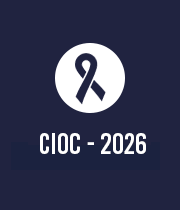Title : Carbohydrate loading: what science brings innovative to surgical oncology patients?
Abstract:
Hospital services have increasingly sought the satisfaction of their clients, through which we are able to measure the quality of health care, as well as other measures of behavioral outcomes of patients1. It is believed to have a direct relationship between the degree of satisfaction of the clients and the results against the proposals of treatment instituted. Studies comparing abbreviation routines of surgical fasting have long been described, and several of them have shown that abbreviating preoperative surgical fasting brings benefits for patients, such as accelerating postoperative recovery, attenuating the response inflammatory, improve the nitrogen and hydroelectrolyte balance, promote improvement in the immune response and healing, and also decrease the length of hospital stay. Regardless of nutritional status, reducing pre-operative fasting periods and increasing car- bohydrate loading can be beneficial in reducing surgically induced stress, attenuating insulin resistance, preserving muscle function and improving patient comfort. Combining nutritional measures in an ERAS programme can help reduce post-operative stay and complications. There is support for the use of immune-enhancing supplementation in certain population groups but more evidence is required. In the study I conducted during the preparation of my master's degree, I noticed that Carbohydrate loading is safe for patients undergoing elective surgeries. It is possible to prevent the onset of nausea and vomiting in the postoperative period when we take the patients from the state of prolonged fasting. Reduction of length of stay in one day. Save of hospital costs by approximately 13%. Surgeries with a higher degree of complexity (such as cholecystectomy for example), with shortened fasting, did not present complications. When we compared patients from this surgery who presented complications with those who did not present complications, the reduction in length of stay was greater and the reduction of hospital costs was reduced to 72%. However, nothing was more important than looking into my patient's eyes and feeling his gratitude for helping him go through something so traumatic for him in a better and safer way.



